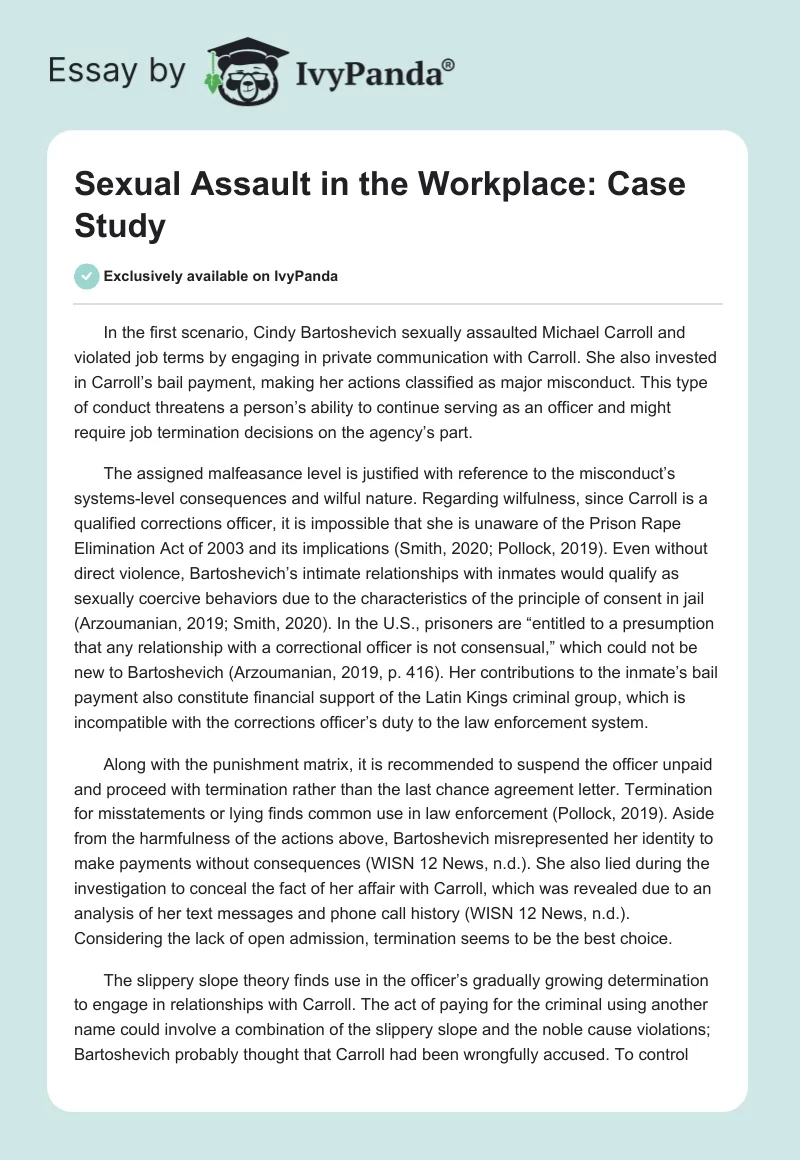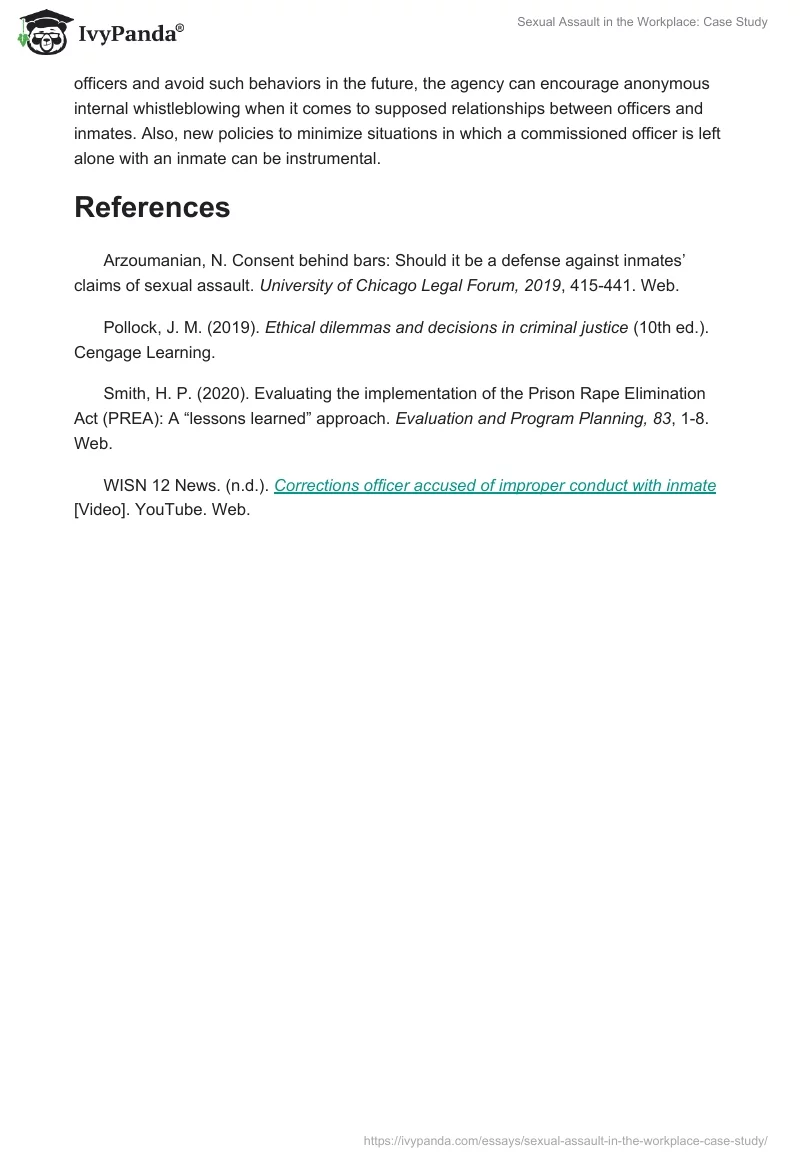In the first scenario, Cindy Bartoshevich sexually assaulted Michael Carroll and violated job terms by engaging in private communication with Carroll. She also invested in Carroll’s bail payment, making her actions classified as major misconduct. This type of conduct threatens a person’s ability to continue serving as an officer and might require job termination decisions on the agency’s part.
The assigned malfeasance level is justified with reference to the misconduct’s systems-level consequences and wilful nature. Regarding wilfulness, since Carroll is a qualified corrections officer, it is impossible that she is unaware of the Prison Rape Elimination Act of 2003 and its implications (Smith, 2020; Pollock, 2019). Even without direct violence, Bartoshevich’s intimate relationships with inmates would qualify as sexually coercive behaviors due to the characteristics of the principle of consent in jail (Arzoumanian, 2019; Smith, 2020). In the U.S., prisoners are “entitled to a presumption that any relationship with a correctional officer is not consensual,” which could not be new to Bartoshevich (Arzoumanian, 2019, p. 416). Her contributions to the inmate’s bail payment also constitute financial support of the Latin Kings criminal group, which is incompatible with the corrections officer’s duty to the law enforcement system.
Along with the punishment matrix, it is recommended to suspend the officer unpaid and proceed with termination rather than the last chance agreement letter. Termination for misstatements or lying finds common use in law enforcement (Pollock, 2019). Aside from the harmfulness of the actions above, Bartoshevich misrepresented her identity to make payments without consequences (WISN 12 News, n.d.). She also lied during the investigation to conceal the fact of her affair with Carroll, which was revealed due to an analysis of her text messages and phone call history (WISN 12 News, n.d.). Considering the lack of open admission, termination seems to be the best choice.
The slippery slope theory finds use in the officer’s gradually growing determination to engage in relationships with Carroll. The act of paying for the criminal using another name could involve a combination of the slippery slope and the noble cause violations; Bartoshevich probably thought that Carroll had been wrongfully accused. To control officers and avoid such behaviors in the future, the agency can encourage anonymous internal whistleblowing when it comes to supposed relationships between officers and inmates. Also, new policies to minimize situations in which a commissioned officer is left alone with an inmate can be instrumental.
References
Arzoumanian, N. Consent behind bars: Should it be a defense against inmates’ claims of sexual assault. University of Chicago Legal Forum, 2019, 415-441. Web.
Pollock, J. M. (2019). Ethical dilemmas and decisions in criminal justice (10th ed.). Cengage Learning.
Smith, H. P. (2020). Evaluating the implementation of the Prison Rape Elimination Act (PREA): A “lessons learned” approach. Evaluation and Program Planning, 83, 1-8. Web.
WISN 12 News. (n.d.). Corrections officer accused of improper conduct with inmate[Video]. YouTube. Web.


